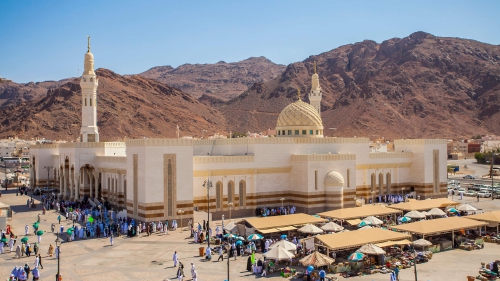Timeline of Gaza | 3500 BCE to October 7th 2023



In the video "Timeline of Gaza | 3500 BCE to October 7th, 2023," historian Matt Baker explores Gaza's rich history, from its origins as an ancient Egyptian settlement to its role in the modern Israeli-Palestinian conflict. The video covers key periods, including Gaza’s time as a Philistine stronghold and under Greek, Roman, and Ottoman rule, highlighting how its past has shaped today's geopolitical tensions.
Early History of Gaza (3500 BCE to 2600 BCE)
In this segment of the video titled "Timeline of Gaza | 3500 BCE to October 7th, 2023," Matt Baker introduces the ancient origins of Gaza. He discusses the earliest known settlement, known as TS Sakan (Hill of Ash), built around 3500 BCE by ancient Egyptians during the pre-dynastic period. Located near the Wadi Gaza river, this settlement likely served as a fort to access local resources. Although the site was abandoned around 3000 BCE, it was resettled by Canaanites around 2600 BCE.
The Philistines and the Formation of Gaza
Baker transitions to the development of Gaza by the Canaanites and the arrival of the Philistines around 2000 BCE. The Philistines, part of a confederation of cities, transformed Gaza into one of their strongholds. The name "Palestine" originates from the Philistines. Despite surrounding regions being controlled by Israelites, Gaza remained independent until around 600 BCE when the Philistines disappeared from history, possibly assimilated into Babylonian society.
Alexander the Great and Hellenistic Gaza
Moving into the classical period, Baker emphasizes the influence of Alexander the Great, who conquered Gaza in 332 BCE and transformed it into a Hellenistic city. This section highlights Gaza’s strategic significance in trade, particularly during Greek and Arab dynasties. Baker also addresses the lack of direct continuity between the ancient Philistines and modern Palestinians, underlining the complexity of the region’s history.
Roman and Early Christian Periods
Between 63 BCE and 135 CE, Gaza was ruled by the Romans and various local leaders like Herod the Great. During this era, Gaza was rebuilt several times and became a multicultural city. When the Roman Empire adopted Christianity, Gaza transitioned into a Christian stronghold. By 500 CE, a synagogue depicting King David playing a lyre was built, showcasing the religious diversity of the period.
Islamic Conquest and Crusader Period
Baker discusses the Muslim conquest of Gaza in 634 CE, marking the end of Roman rule and the beginning of a new Islamic era. Churches were converted into mosques, and the Great Mosque of Gaza was rebuilt. Gaza remained under Muslim rule until the Crusaders captured it in 1099. The Crusaders ruled Gaza for 87 years before it was destroyed by the Mongols and later reclaimed by the Mamluks and the Ottomans.
Ottoman Rule and Rise of Palestinian Nationalism
The video shifts focus to the late Ottoman period and the rise of Palestinian nationalism in the late 19th and early 20th centuries. Baker explains how various powers controlled Gaza, but by the late 1800s, the inhabitants—mostly Muslim and Christian Arabs—began to identify as Palestinians. Despite Ottoman decline, Gaza remained a focal point of colonial interests, with the British taking control during World War I.
Israeli-Palestinian Conflict (1949–2023)
Baker moves into modern history, discussing the impact of Israel’s formation in 1948 and the subsequent displacement of Palestinians, known as the Nakba. Gaza was placed under Egyptian control until Israel captured it in 1967. The video covers key events such as the First and Second Intifadas, the creation of the Palestinian Authority, and Hamas taking control of Gaza in 2007. The segment ends with the escalation of conflict on October 7, 2023, when Hamas launched rockets into Israel, prompting Israeli military action.
The Need for Peace and Coexistence
In the final part of the video, Baker reflects on the ongoing conflict between Israel and Palestinians. He acknowledges the historical struggles of the Palestinian people and calls for a resolution that ensures both a safe haven for Jews and a peaceful, equitable state for Palestinians. Baker criticizes Western powers for contributing to the conflict through arms sales and emphasizes the need for a more proactive role in fostering peace. He concludes with a message of hope for understanding the complex history of Gaza.
Also Watch: The History of Islamic Gaza
Credits:
Charts & Narration by Matt Baker
Animation by Syawish Rehman
Audio editing by Ali Shahwaiz
Intro music: "Lord of the Land" by Kevin MacLeod and licensed under Creative Commons Attribution license 4.0.
( Source: UsefulCharts )
Topics: Arabs, Gaza, Geopolitics, History, Israeli-Palestinian Conflict, Jews, Ottoman Empire, Palestine
Related Suggestions
In accordance with Title 17 U.S.C. Section 107, and such (and all) material on this site is distributed without profit to those who have expressed a prior interest in receiving the included information for research and educational purposes.














